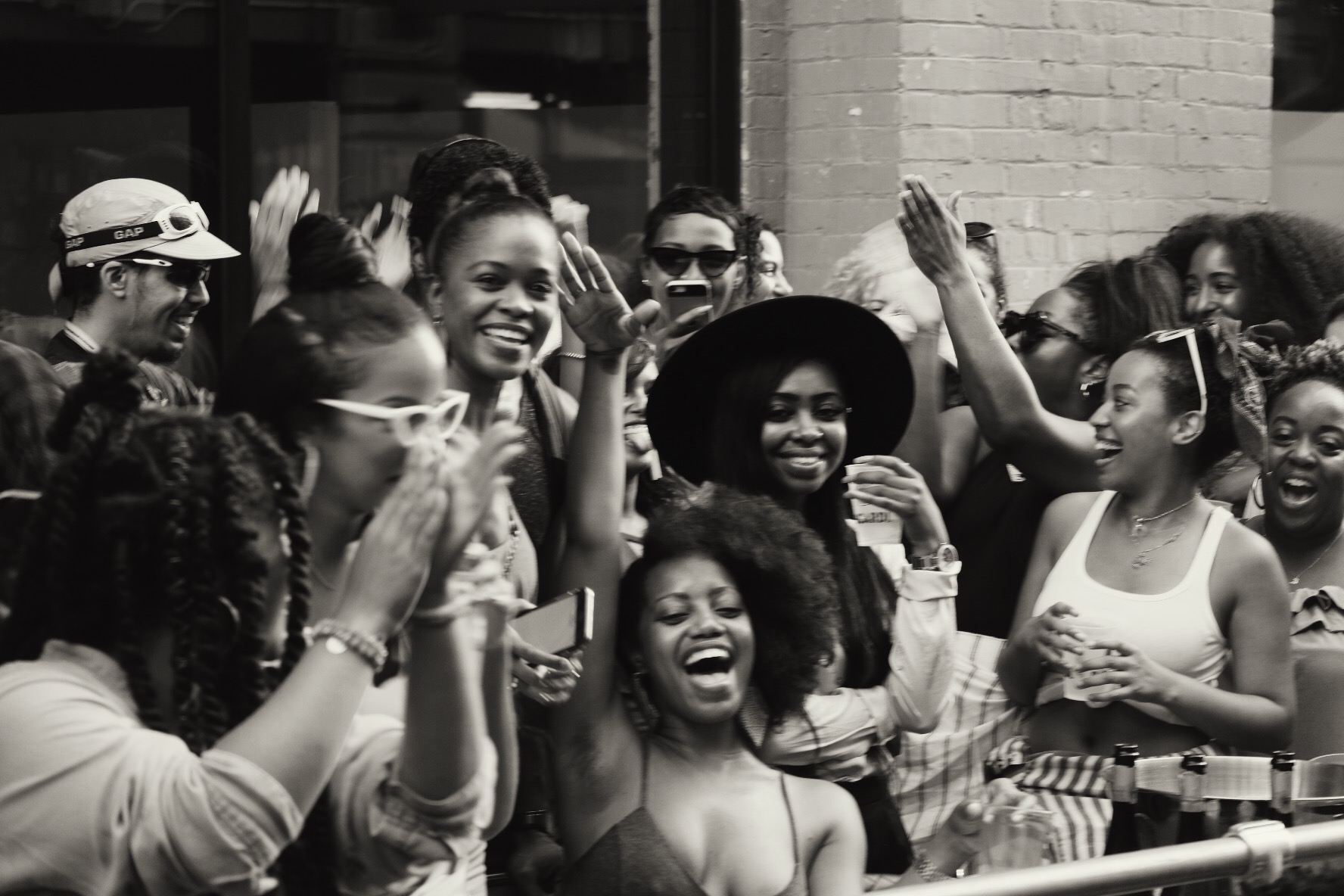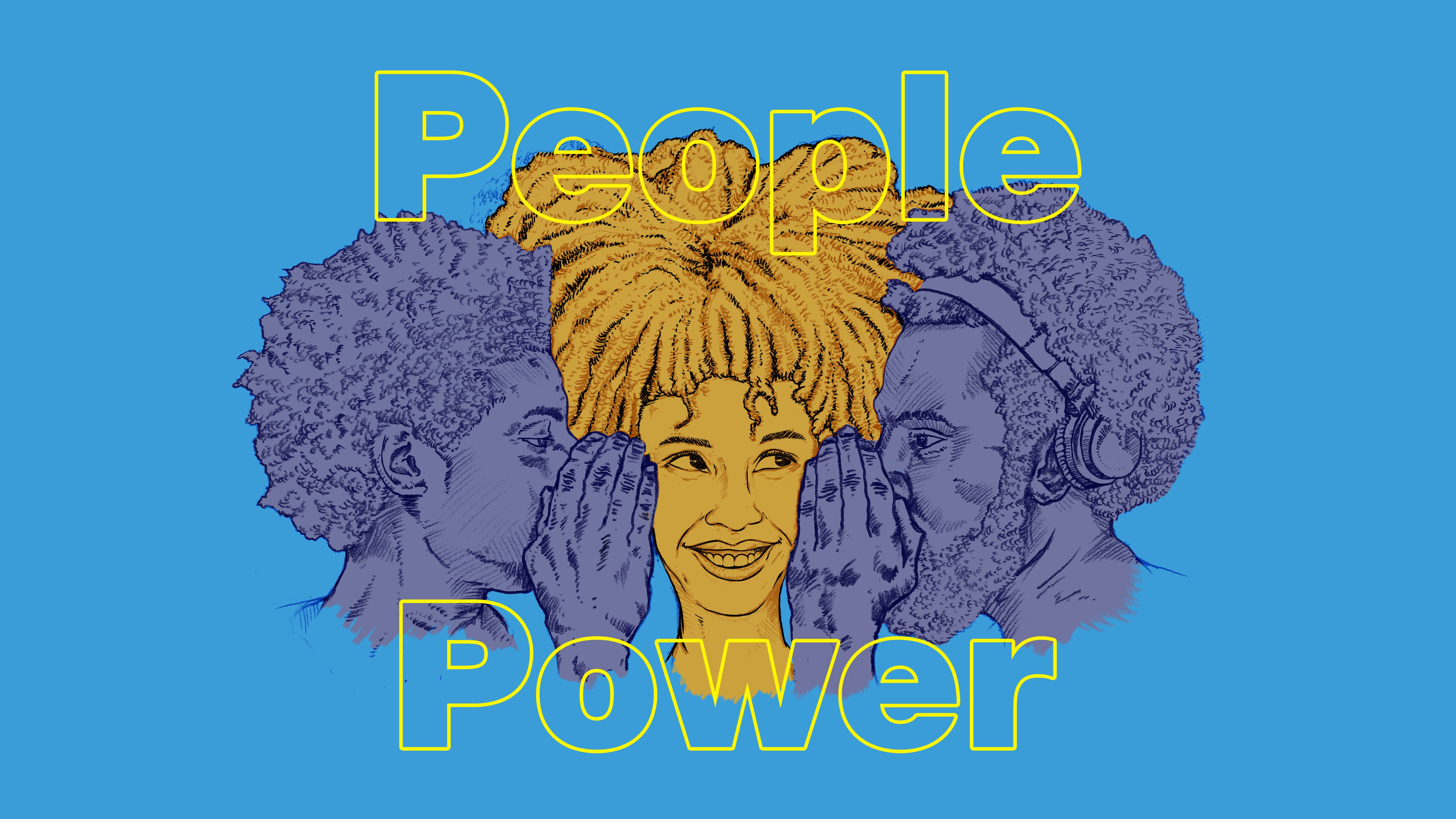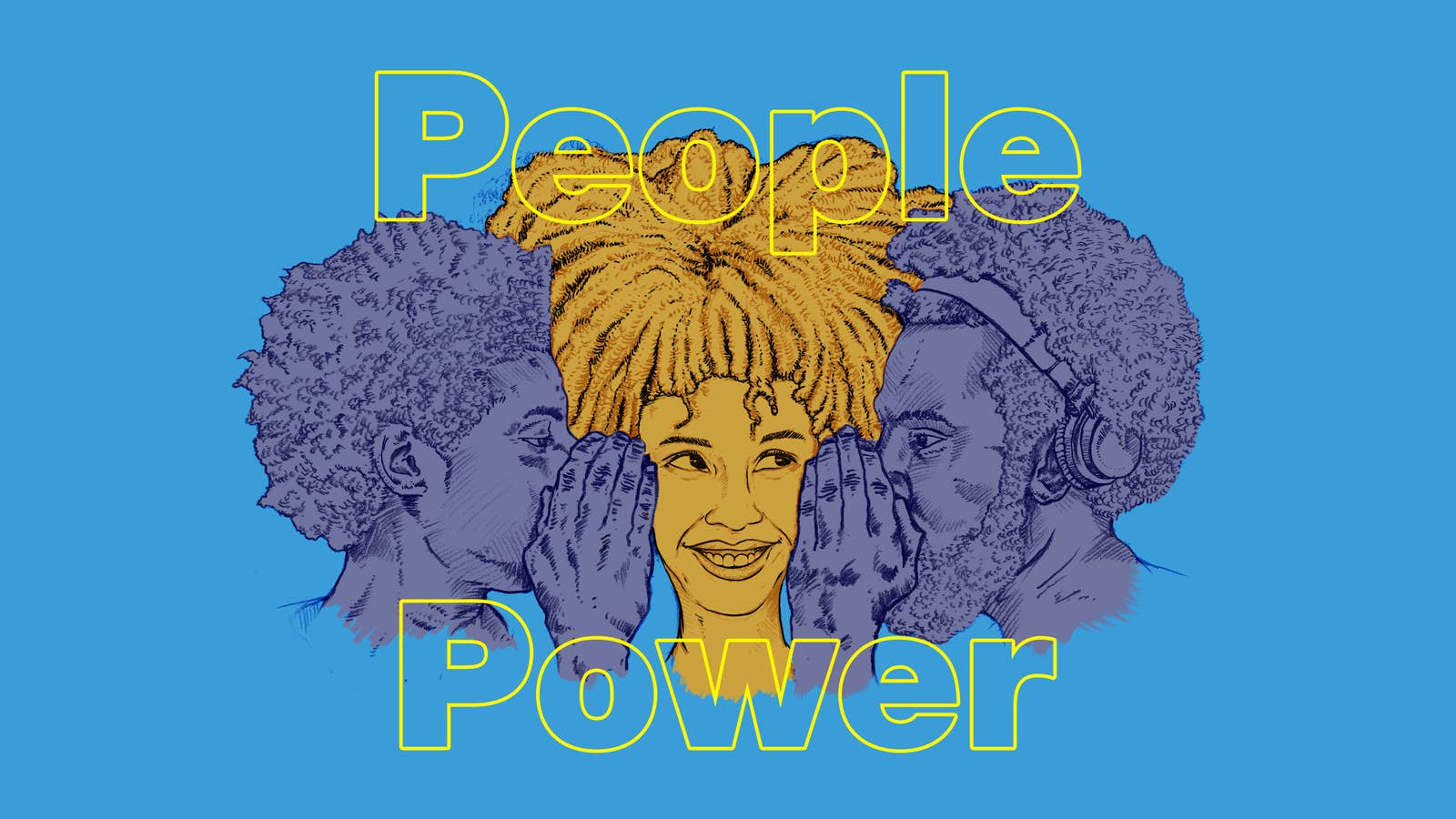
Saada Ahmed can’t help but join in on the commotion when the voices on the other side of her phone line erupt in a swirl of shock, disbelief, and laughter. The 32-year-old entrepreneur is in L.A. juggling the tedium of unpacking boxes from a cross-country move with a phone interview, and she’s just told a mixed party of listeners a truth even her own manager didn’t know. “I'm an only child, which is very rare for someone who’s African,” she begins. “But I've got 60 first cousins on my mother's side. [My family] got busy.” Aside from detailing her robust family tree, Ahmed uses our time to talk about her other family: Everyday People.
Founded in 2012, Everyday People is one of the most well-known gatherings for party people from within the African diaspora and those who appreciate its culture. The intimate brunch series turned global party platform has hosted events in most of the major U.S. cities, as well as in South Africa, Kenya, Ethiopia, and soon, Brazil.
Back in 2009, Ahmed moved to New York from Atlanta, where she spent her formative years. After living in the Big Apple for three years, she began doing a lot of thinking about place, community, and how few spaces there were for people like her to authentically connect and socialize in New York. So she decided to create one herself. Without a well of resources to pull it off on her own, Ahmed tapped her extended circle for potential collaborators who could help her plan come to fruition. Her first event, a brunch in the Lower East Side, took place in 2012 and was a success.
Enter DJ Moma and Chef Roblé Ali, who after providing a venue, music, and a curated menu for the inaugural event, wanted to help evolve Ahmed’s vision from a small local party to something even bigger. Later that year, Ahmed, Moma and Ali hosted their first event under the Everyday People umbrella, which marked the launch of the trio’s brand.
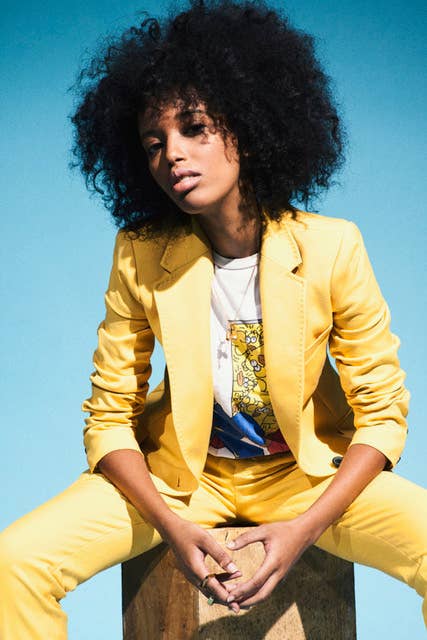
Ahmed still remembers the collective’s humble beginnings—before they expanded to a bigger staff with interns—when they had to handle multiple tasks themselves. “We had to do everything,” she recalls with a laugh. At the time, Ahmed had to find photographers for the events, curate the photos going out to the public, write all the copy, and even personally text and email invites to people in hopes they’d attend. “The only thing that I felt wasn't my role in the beginning stages was dealing with the management at the venue,” she says. “You have to have a conversation with the people who work there, because we don't know you. And there's a certain way we want people to be treated. That's where Moma and Roblé’s expertise came in. They worked in nightlife, so they knew how to talk to those people.”
Ahmed points to the disparate backgrounds of her partners as a key component of their chemistry and Everyday People’s success. “Me, Moma, and Roblé are very different,” she says. “We're different types of people and it was interesting to see how we brought our different types of black people, specifically, because we're not monolithic, into that scenario. It was cool to see different types of people interact with each other.”
Since that first event several years ago, the Everyday People team has expanded from three to 12 and spread their brand across the globe. Although being largely remote, they operate like a well-oiled machine, communicating all day, every day, in the name of efficiency, cohesion, and growth.
“I think we speak the same language in some ways. We're black, we’re part of the diaspora, and I think we get each other in terms of being black in America and understanding each other's nuances,” Ahmed says of Moma and Ali in particular. “So, when it comes to communicating with each other, it's so easy. It’s the easiest job I've ever had.”
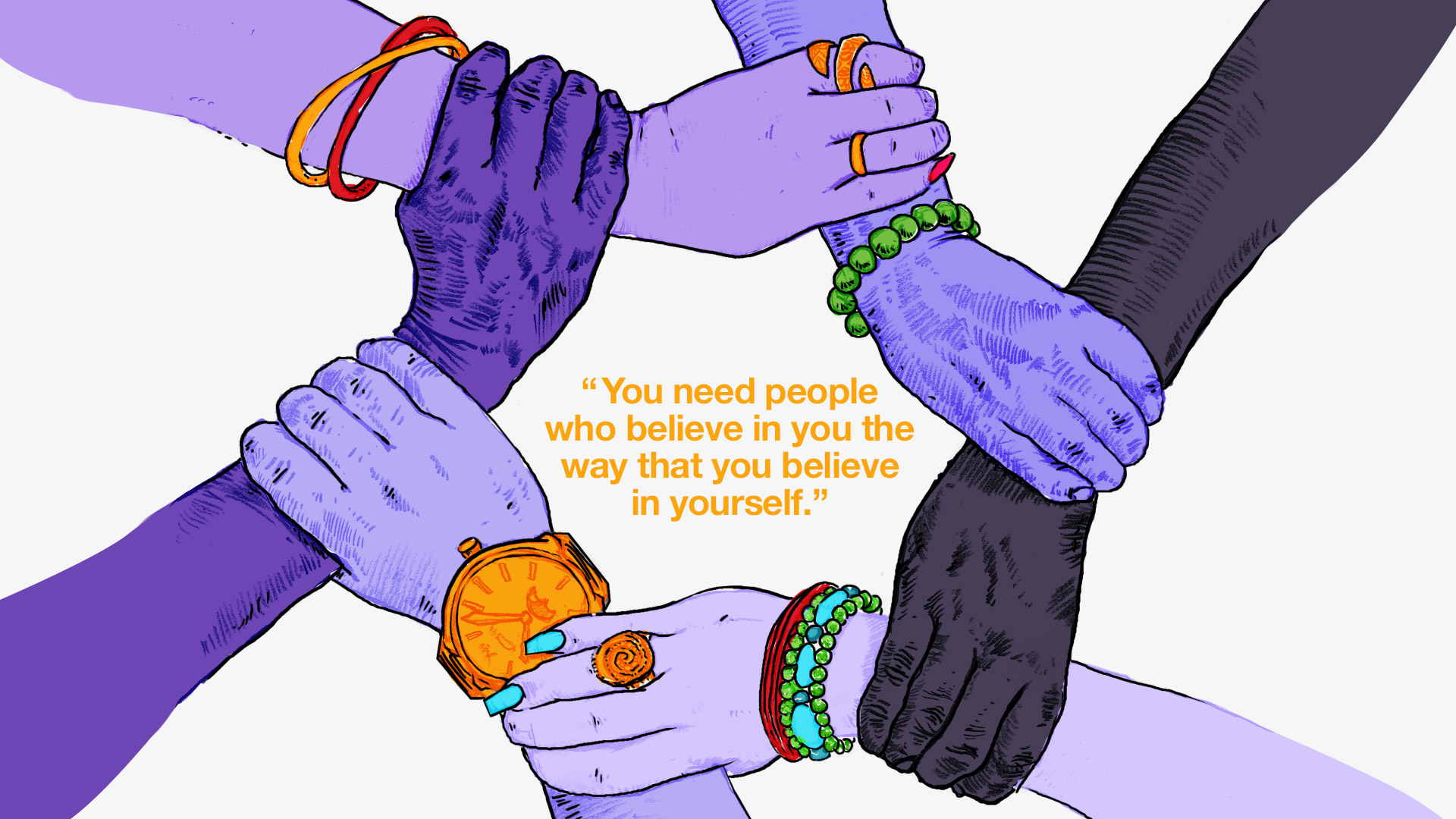
Over the past decade, Ahmed, Ali and Moma have built up a workspace that’s anything but normal. Everyday People is a brand built on flexibility, transparency, honesty, and accountability—things that have slowly molded Ahmed into a person her team can look up to and lean on.
“As you grow [with the brand], it becomes challenging because then it puts a mirror to your face of the things that you need to improve. It shows me that I need to be a better leader, and that I'm scared of being a leader,” Ahmed says, noting that she now functions as a creative director. While all of the decision-making is an equal split between the three co-founders, Ahmed is involved in bringing in new business and helps find the talent to perform and host each event. “This opportunity has shown me that, unfortunately, you don't choose to be a leader. It just has to happen.”
Part of taking on that new mindset entails keeping the rigid structures that typically define the corporate world far away from her team at Everyday People. “I don't use the language that we've been taught from other constructs. We need to create our own world that's not reflective of it,” Ahmed says. “The constructs that I'm used to are not applicable for what I'm creating now. Yeah, you worked in corporate America, Moma was an engineer, Ali worked with TV... I don't care. I don't want to bring those systems into our work life.”
Any occasional hiccups in workflow are always trumped by the biggest perks of the job: providing people of color with a fun space to connect socially and professionally, job opportunities within Everyday People’s programming, and a huge platform for talent within the diaspora to showcase themselves. In 2019, 40 Everyday People events attracted over 53,000 attendees across 14 cities and eight countries.
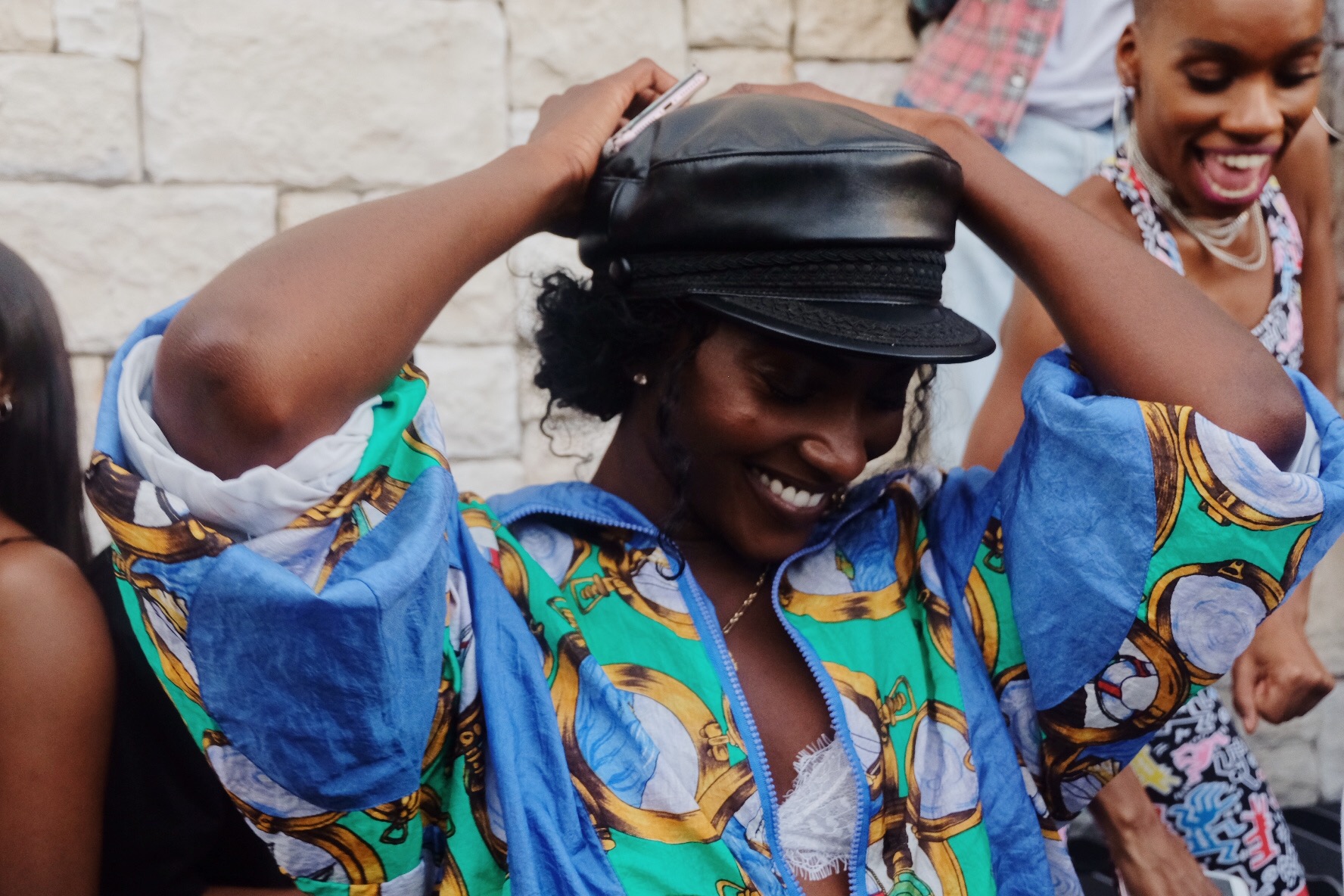
On top of that, Ahmed’s diverse roster of previous gigs, including handing out flyers, working as a receptionist at a hair salon, and retail jobs have given her plenty of insight into the kind of employer she should be for her own team: one who cares. “I think being really kind, honest, and making people feel valued [is important],” she says. “Even if you don't want to be part of our job anymore, it's okay. We want to help you cultivate who you truly are.”
The same goes for Moma, Ali, and notable Everyday People associates like Sinclair Bolden and Maine Buchanan. Not only are these men coworkers who Ahmed’s entrusted with her brainchild, they’ve also become her brothers and her advocates. In the early stages of the business, Moma and Ali brought Ahmed into meetings and made sure people knew this black woman was not only part of this endeavor, but was the reason for it. “There were definitely situations where people thought I was the girlfriend, and [Ali and Moma] are like, ‘No, she created this,’” Ahmed recalls. “They would be very clear in sharing that I was the person who started it.”
“This opportunity has shown me that, unfortunately, you don't choose to be a leader. It just has to happen.”
Now that she’s nurtured her humble dream into a cultural movement, Ahmed is eyeing new pursuits beyond Everyday People. While she doesn’t delve into the specifics of what that path might look like, she readily acknowledges that it’s a scary one to wander down. And as much as the workspace she’s created empowers her staffers to step into their own true purposes, the Everyday People family doubles as the push of encouragement she needs to embrace hers.
“I would not be where I am if I didn't have a team,” Ahmed says firmly. “You have blind spots. Everyone has things that you need someone to help you with.”
“I think there's a lot of fear of doing something new because you think you have to do it on your own because of the media,” she adds. “You watch TV and you think, Oh, yeah, this person is self-made. No, it takes a team. Whatever ventures you do, you need a team. You need people who believe in you the way that you believe in yourself.”
